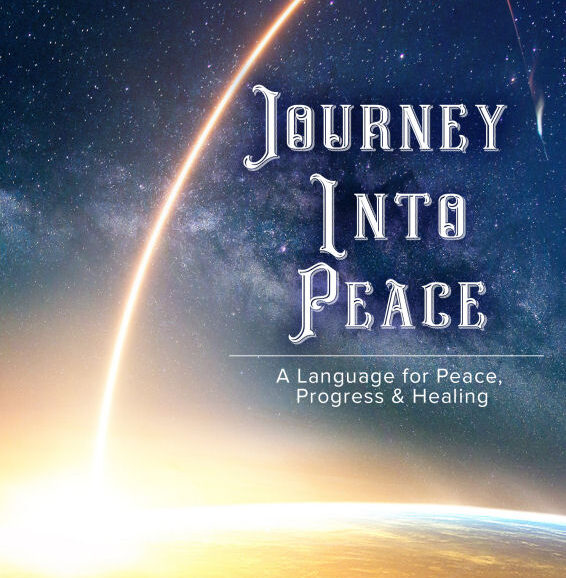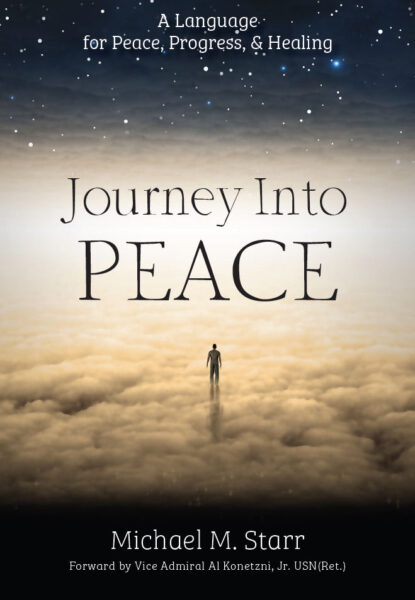INTRODUCTION
Are we but Neanderthals with our current language?
“The limits of my language mean the limits of my world.”
—Ludwig Wittgenstein
Language has a remarkable impact on our thinking, actions and relationships. My dog Rippy reminded me of this big time! We have two rescue dogs, Rippy and Lola. Rippy, a tan and white colored Chihuahua with darkened sad looking eyes, is the latest addition to the family. I found that unlike Lola, he would shy away from my efforts to pet him. Now, five years later, Rippy still folds back his ears and retreats when anyone walks quickly toward him or he may growl, then strike out and try to bite their ankles. I remember a few weeks after we adopted him, my wife Karen telling me to “be patient” in response to my comment: “this is the most unfriendly dog we have ever had!” I was right, yet I was wrong. I was about to poison my relationship with him.
HIGHER TRUTH
After some thought I realized patience was a useless word and unfriendly was a dangerous word. The term “unfriendly” actually harms as it prevents healing and progress because it lacks empathy. I corrected myself later and said to my wife that I now believed Rippy was fearful, insecure, and anxious. Perhaps he had been previously abused, or maybe it’s baked into his DNA. The view that he’s fearful, insecure and anxious, is more empowering and effective for both of us. It depersonalizes his behavior with me. It elicits compassion, which in turn improves my behavior with him. This shifted me from a binary dead-end view of either all good or all bad to one that promotes a healthier interaction between the two of us. I am now mindful to move slowly toward him and be kind with my tone of voice. When I do so, he does not shy away or appear to be afraid. This is a Higher Truth about Rippy – fearful, insecure, anxious vs. unfriendly. Using better language about Rippy makes both of our lives more peaceful and our relationship healthier. This is an empowering alternate reality with our little ten pound Rippy.
Language communication has evolved from the grunts of primitive cave people to a vocabulary of the more than one million choices currently in the English language. Our language has evolved wisely in some ways. In the sciences such as chemistry and physics, there has been continued logic and precision with language, in which new concepts stand on the shoulders of the older ones. Yet, in many other areas, our words have evolved haphazardly. The word stupid, which has its roots in the Latin stupere, originally meant amazed or stunned, rather than the inferior derogatory accusation it has come to mean today. Our language in relationships and interpersonal communications is especially fraught with ambiguity and misunderstanding.
OUR LANGUAGE IS FLAWED
I contend that the common language we use is seriously flawed and inadequate. Our words and language often create barriers that limit and stifle progress and improvement. Language can actually make things worse for us. Woven within many words are formulas for failure that interfere with successful communication and thinking. Saying someone is unfriendly, mean, or stupid obstructs possibilities for improvement and connection. It often is more about our feelings and less about another and who they are.
There is an incredible amount of opportunity for our growth and advancement with the use of language. Perhaps currently we are cave people, mere Neanderthals, with our current use of language? Like the model-T auto and sailing ships, which were transportation marvels in their day, our current communication modes are now only at a rudimentary level of effectiveness. However, we do have exciting possibilities with how we can use words during our future evolutionary path ahead.
On its most fundamental level, we use language to think and communicate. Our language allows us to learn “better ways” to connect with others and achieve mutually desirable outcomes. It is a magic flying carpet that has taken us far beyond our primal “fight or flight” instincts and reactions. It has helped us to advance from anarchy to civilization. We use it to express our feelings toward each other and within ourselves. We use language to understand what is happening around us and how to best respond. We use it to diagnose and create solutions to problems. In many ways, our use of language defines us by directing our behavior in response to perceived realities. Wise language can be the difference between harmony and animosity, progress and frustration, empowered hope and disempowered victimhood. If we are not vigilant with language use and understanding, we can be deceived to believe exaggerated slanderous views of others. These views divide, disempower and distract us from healthy relationships. They facilitate self-righteousness and become the antithesis of empathy and compassion. This is the path of despair and inadequacy. Seeking “common ground” has become most “uncommon”. It isn’t that we have lost our way as much as that we have been using unhealthy language and it has caught up to us. We never really found a way.
THREE KEY LANGUAGE CATEGORIES
The foundation for a peaceful, happier and more productive life occurs when we become aware how our terminology impacts our perceptions and thinking. It is especially important that we understand the following three categories of language:
1. Useless words that take us nowhere except in circles
2. Dangerous/tyrannical words that harm, divide and confuse
3. Wise, empowering words which advance our personal progress and inner peace
During my lifetime I have seen much unnecessary pain experienced by people around me; by myself as well. I am now convinced that we can mitigate if not eliminate much of this suffering and conflict. We can do this through wise empowering language which focuses on empathy, objective empowering acceptance, and boundaries with consequences.
In my seventy-plus years as a student of life, I have taken many journeys:
• Summiting Mt Kilimanjaro
• Canoeing from Pittsburgh to New Orleans
• Driving a nuclear submarine
• Witnessing of successful substance abuse recoveries
• Managing a $100 million-a-year manufacturing production line
None of these journeys have been as painful, challenging and rewarding as my transition from anger and resentment to loving empathy and boundaries with consequences. I came to see that my language had created a prison. I embraced a curiosity to understand why others became as they did. As a result of my understanding I achieved a new empathy for them. This all led to an objective empowering acceptance. As a result, I was able to abandoned self-righteous views of the people and the world around me. I now am free to soar.
WHAT IS POSSIBLE FOR YOU
Are you looking for more peace of mind and achieving results that matter? Do you desire less drama and more joy in your life? Do you wish to find and promote harmony within yourself and with others you care about? I believe you will find in the pages ahead seeds that will grow to bear the fruit of increasing wisdom for you. You can live a life where each year is more bountiful than the last!
If you are intrigued by the possibilities available through the use of improved language, and interested in a future with growing peace of mind, purpose, accomplishment, and harmony, then this book is for you.
This book will show you how to make peace with the past, progress with the future and enjoy today free of frustration, guilt or resentment. By the time you finish reading this book you will:
• Learn how to use wise empowering language to improve your relationships
• Have available to you over 20 “States of Being” that will serve as your sword, shield and compass.
• Know how to set effective boundaries
• Be able to better help others who are struggling with life challenges
• Achieve compassion and caring for yourself and others
• Achieve and sustain results that matter
Providing a means to reduce suffering and increase satisfaction is my mission.
Your friend,
Mike


